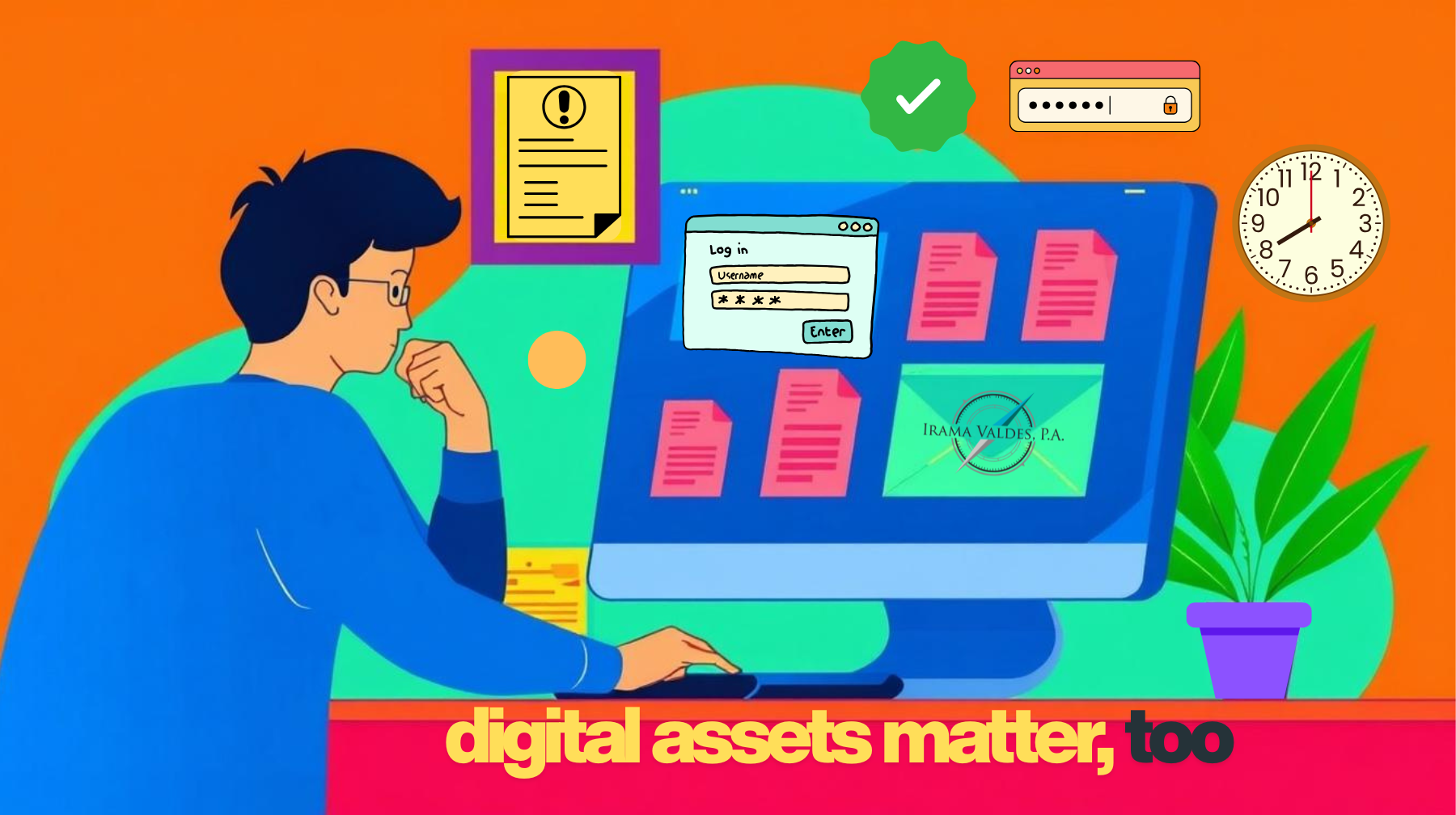Let’s be honest — estate planning isn’t exactly how most people want to spend a Sunday afternoon. But here’s the thing: getting organized now means making things so much easier later — for you and for the people you love.
At its heart, estate planning is about taking care of yourself and your people. It’s about making sure someone can step in smoothly if you can’t make decisions yourself, ensuring your kids or dependents are looked after, and giving clear direction for how your estate should be handled after you’re gone.
A big part of making that happen is creating an inventory of your assets — not just the house, bank accounts, or family heirlooms — but your digital life too. We’re talking about your online accounts, passwords, photos, social media, and that random cloud storage account you opened in 2012 and forgot about. A solid digital inventory helps your loved ones avoid frustration and delays down the line. And bonus? It brings a little peace of mind now, knowing you’ve left things organized and thoughtful.
Your Digital Estate Is a Living, Breathing Thing
Unlike your great-grandmother’s china cabinet, your digital life doesn’t just sit still. It grows — new accounts, new passwords, new platforms (and then more passwords). That’s why your digital inventory is never truly “done.”
Part of your job is to keep track of what you have and where it lives. This means:
-
Updating your list of digital accounts and assets,
-
Recording and changing passwords regularly, and
-
Making sure someone you trust can access what they need to, when they need to.
It’s not just good planning — it also keeps your information more secure during your lifetime.
Why Passwords Matter (a lot)
If you’ve ever been locked out of your own account for forgetting which version of “P@ssword123” you used, you already know how frustrating this can be. Now imagine your loved ones trying to do it without you there to help.
That’s why keeping your passwords secure and organized is essential. A few practical tips:
-
Use a different password for every account (I know, I know — but it matters).
-
Change them regularly, especially for anything financial.
-
Aim for at least 14 characters with a mix of letters, numbers, and symbols.
-
Please — for the love of security — no “12345,” no pets’ names, and definitely no favorite sports teams.
A password generator can be your best friend here. Yes, it will spit out a password that looks like a cat walked across your keyboard. No, you won’t remember it. Which brings us to…
Storing Passwords: Digital vs. Paper
Everyone has their own comfort level here, and honestly, there’s no one-size-fits-all.
If you’re old-school:
You might prefer a hard copy of your passwords, stored in a locked desk, home safe, or even a safety deposit box. The key here is keeping it secure and making sure at least one trusted person knows where to find it when the time comes.
If you’re more tech-friendly:
Consider a reputable online password manager like LastPass or 1Password. These services don’t store your master password, which means only you can access your vault. Just be sure not to forget that master password — no one (not even the company) can recover it for you.
Whichever route you choose, don’t forget to record usernames, security questions, and those tricky “first pet” answers, too. Your executor might not know the name of your goldfish from 1989.
The “Afterlife” Tech Options
Here’s where things get a little futuristic. Some people use “afterlife companies” — yes, that’s a real thing — to store their digital information, passwords, and even instructions to be carried out after they pass away.
Think of it like a secure online safety deposit box. You can:
-
Store your logins,
-
Schedule a final post on Facebook,
-
Send digital files or messages to specific people, and
-
Control what happens to your social media and online accounts after your death.
The catch? Not every company lasts forever (ironic, I know), so it’s smart to run this by your estate attorney to choose a reliable option.
Bring Order to the Digital Chaos
Managing your digital assets isn’t just about tidying up loose ends — it’s about empowering yourself. When you have your digital life in order, you take control instead of letting technology control you.
I tell my clients all the time: estate planning isn’t about being morbid — it’s about being intentional. Creating a digital asset inventory is a gift to the people you love. It removes confusion, reduces stress, and makes sure your voice is heard — even when you can’t speak for yourself.
So whether your “estate” includes five bank accounts or five different streaming subscriptions, start building your inventory today. Your future self (and your family) will thank you.








